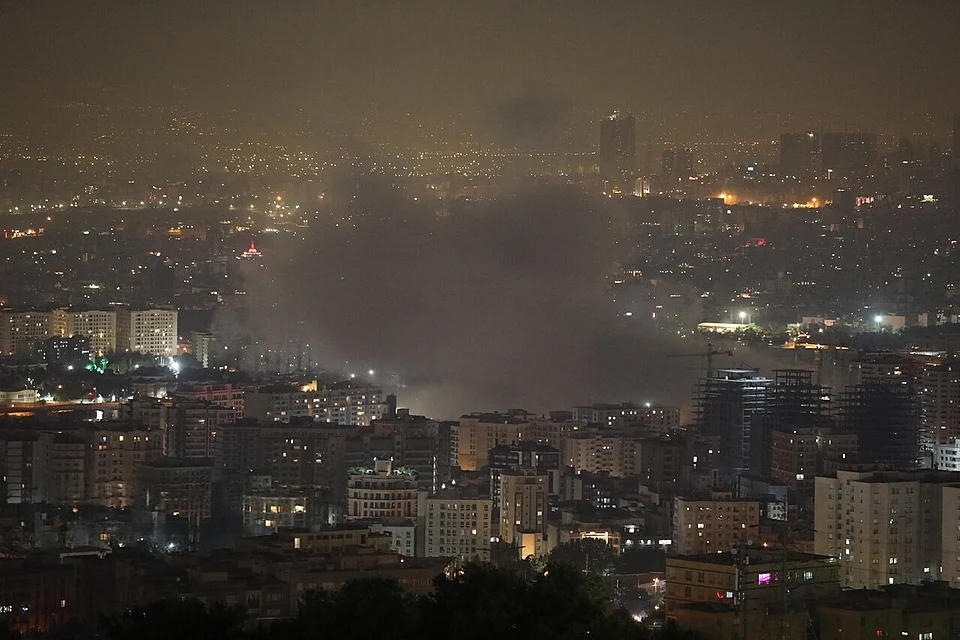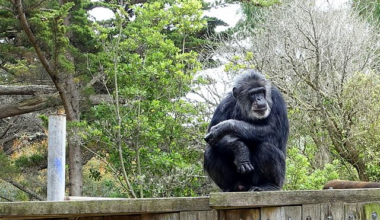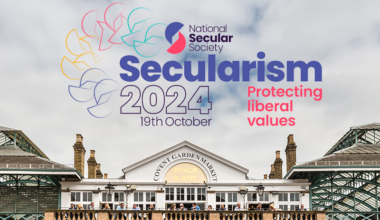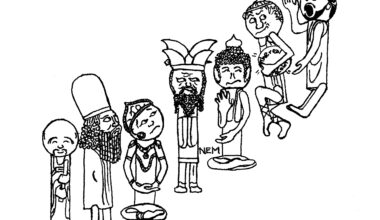
Protests in support of Iran’s Supreme Leader Ali Khamenei and his Islamist regime are taking place across the UK and other European states. The regime, which has avowed the West’s ‘death’ as its raison d’être, is being eulogised on the streets and social media by some citizens of the West, owing to the fact that they share the same religion as the one the clerics in Tehran have brutally enforced. These demonstrators have long tinted their support for Hamas’s jihadist violence, against both Israelis and Palestinians, with labels of ‘resistance’ against ‘colonial powers’. They are now proclaiming victimhood on behalf of an Iranian regime whose imperial forces and proxies have perpetuated ruthless atrocities across the Middle East, subjugating millions of Muslims under the pretext of jihad against Israel and the West.
Of course, there are scores of reasons to condemn, and protest against, Israeli and American strikes on Iran, or their policies in the region, not limited to the former’s own expansionist actions and the latter’s pulling of various strings across the Middle East. Indeed, critiques of Zionism have always been spearheaded by progressive Jews, while no one has demonstrated against US policymaking more robustly than the American left. It is precisely this abundance of self-criticism in the West that Muslim activists, instead of replicating it within their own communities and states, have exploited to weave the shrouds of postcolonial narratives to couch their dutiful support for Islamist causes around the globe.
After all, if protesting imperialism were the rationale, then surely some narrative-building—not least by the Muslim left often camped, or educated, in the same Western states whose demise they cheerlead—would also be dedicated to Islamic colonialism, and to the military occupations and denials of self-determination in many parts of the Muslim world. Instead, today, ‘Judeo-Christian’ accountability over indigenous rights, and Western reparation for past colonial crimes like slavery, is being demanded by those Muslim populations who have erased all semblance of their native cultures under mass Islamic conversions and expansion, and who are still being victimised into slavery in Arab states.
The Muslim intelligentsia and their allies might have learned to insert the word ‘Zionist’ in place of ‘Jew’ in their customary Judaeophobic activism, but their vehement castigation of a nationalism rooted in the Jewish religion and based in a country spanning around 0.1 per cent of the Middle East’s land mass, while almost entirely ignoring the brutal enforcement of the Muslim religion in the rest of the region, is, at the very least, curious. One might even say it is telling. Those expressing righteous indignation over plans by the region’s one Jewish state to relocate the Gazan Muslim population offer little by way of self-reflection on the cleansing of Jewish populations from up to fifty Muslim countries.
Needless to say, if we Muslims were a fraction as self-critical as those we deem to represent the ultimate evil, there would have been much more progress in addressing crises such as the Arab-Israeli conflict. The rest of the world naturally finds it hard to perceive any Muslim condemnations of Israel as being in earnest when the unflinching Muslim position has been the erasure of the Jewish state. Self-awareness might also have made us focus our energies instead on Iran, and indeed Saudi Arabia, which have radicalised the Muslim world in their respective quests for Shia and Sunni Islamist supremacy. (The latter form of supremacism is best shown by the fact that Saudi Arabia has been joined in its jihad-funding by other Sunni Gulf monarchies such as Qatar, which was the target of Iranian strikes on Monday.)
Saudi Arabia and Iran’s authoritarian stranglehold over their countries and their imperial ambitions put the West to shame—and they also have more Muslim blood on their hands than any Western power. Harping on about Western support for the likes of Saudi Arabia ignores the West’s opposition to Iran and, in any case, it is a deflection. Saudi (and Iranian) theocracy and imperialism are forces in themselves and need to be condemned in themselves.
It is precisely this Islamist radicalisation spearheaded by Riyadh and Tehran that has not only resulted in the cleansing of Jews from the Muslim world but has also led to the exodus of indigenous Christians, Hindus, and other religious minorities from these countries, including those Muslim-majority states that proclaim to be constitutionally secular. Dissenters in these countries face codified violence, including death penalties, for ‘crimes’ such as being gay or atheist. The fact that Islam today is the only ideology that codifies death for blasphemy, nonbelief, or homosexuality should make the critique of it the biggest free speech cause in the world. Progressive Muslims should especially welcome and engage in this critique and cause. Instead, the Western states which overcame their own volatile, violent, and theocratic histories to attain hard-earned freedoms appear ready to surrender it all to Islamist thugs.
Hamit Coskun’s conviction earlier this month for burning a Quran outside the Turkish consulate in London—so redolent of the law against the ‘inappropriate treatment’ of religious texts in Denmark, which is de facto also the case in Sweden, where a man was murdered for burning a Quran, and now the UK—is evidence of an abject capitulation to Islamic blasphemy laws. Such laws and court verdicts are almost plagiarising Sharia clauses concerning blasphemy by blaming those who disparage Islam for the Islamist violence perpetrated against them. Those who exercise their right to free speech, in other words, are being victim-blamed.
Upholding exclusive protections for Islam and legally equating the targeting of a belief system with an attack on a whole people naturally solidifies Muslim exceptionalism and separatism, which in turn allows the community to continue to orient itself in opposition to the West. For if the Muslim community is treated as a monolithic group that pays foremost allegiance to its religion, and the religion is privileged every time it clashes with the erstwhile legally-protected fundamental rights in secular democracies, Muslims will naturally gravitate to religious causes even when these are in conflict with the countries in which they live. This isn’t limited to the West or other countries with large Muslim minorities, such as India. This elevation of Islam over the well-being of the state is also prevalent in many Muslim-majority countries.
There is, therefore, a direct link between the penalisation of blasphemy against Islam in the Coskun case and protests in central London in defence of the likes of the blood-soaked theocrats of Tehran who advocate jihad against ‘infidels’ and the West. With European liberals acquiescing to, nay echoing, the Islamist worldview of a uniquely malevolent West, the stage was set for rightwing parties to claim the mantle of being the true champions of liberty and equality—and they will continue to advocate a crackdown on radical Islam as an excuse to target Muslims. What this means is that the much-needed opposition to Islamist exceptionalism has largely come from those invested in reciprocating Muslim separatism by othering the Muslim community as a whole.
Whether it’s the refusal to challenge the Islamist status quo in Islamic states or the cries of perpetual Muslim victimhood in liberal democracies, this utter lack of introspection has harmed Muslim communities across the globe just as much as it has the non-Muslim victims of Islamism. Self-criticism is the only antidote to this fatal malady.








2 comments
I am in wonder and admiration at the courage that drives your pen. I am in my 80s, embedded through family in my country’s colonial history and imperialism – my great g/grandfather Sir Henry Maine was legal advisor to the Council of India in the early 1860s; my grandmother died in Mumbai in the 1930s, her husband, Sidney Baddeley was military secretary to the Governor General of that city; my mother’s godfather, Sir Richard Pierse, was Air Officer Commanding Palestine Transjordan Command during the Arab revolt in Palestine. I am well read since university – long ago – in the self-criticism and re-writing of a once triumphal geo-political narrative about the West and the British Empire. Engagement in and contribution to such discourse, far from putting me at risk of criticism or physical harm, is simply a normal way of thinking and understanding; as much conventional knowledge as that the sun is no longer at the centre of the solar system. You are, on the other hand, like one who 500 years ago would have been putting yourself at public risk by agreeing with the bizarre ‘heliocentric’ theorising of Galileo.
Hero.
Unfortunately, violence wins. I understand and share the cowardice of the Left. What I condemn is that they take on leading positions knowing they are cowards. I will happily support a courageous person, but I also want my head to remain attached to the rest of my body.
If nothing short of revolutionary is done, Europe will go back to the darkest of times.
Luigi, not my real name or email obviously.
Your email address will not be published. Comments are subject to our Community Guidelines. Required fields are marked *
Donate